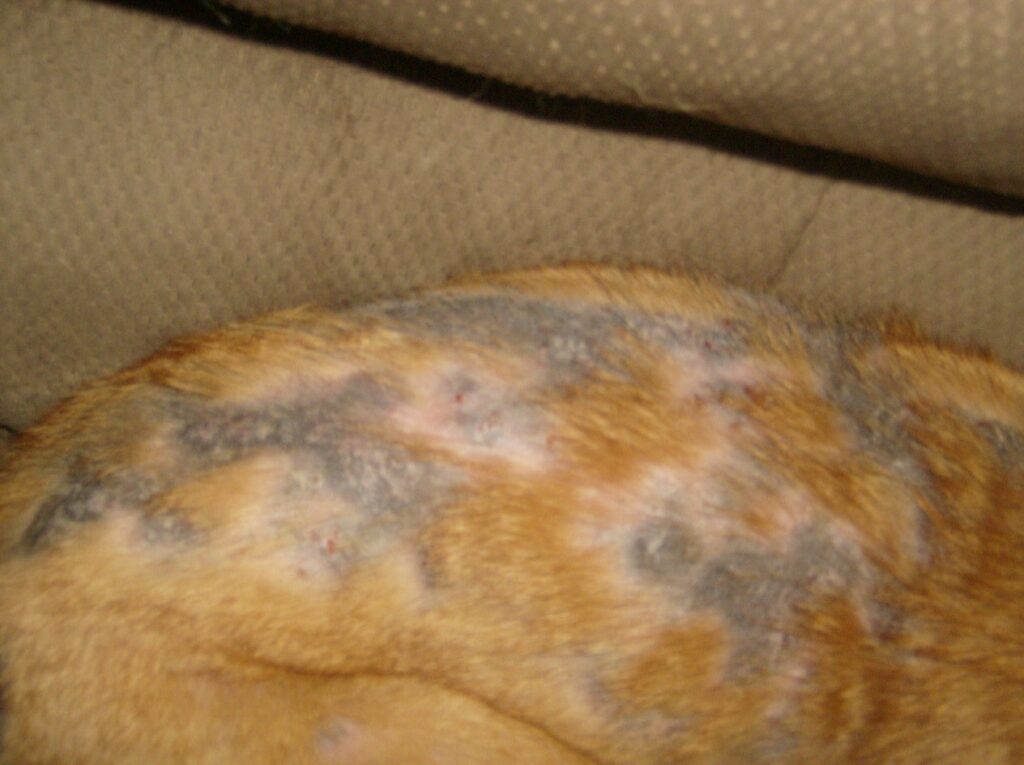Demodex or demodicosis is a mange mite which usually infects young puppies, but can be found in any age dog and also in cats. It is a ‘cigar shaped’ mite which burrows into the hair follicles where it spends its life.
Puppies
Most adult dogs carry a few demodex mites, but when bitches are pregnant the mites become activated and, although the bitch may not show any signs, they migrate onto the puppies where they can cause bald patches and itching. These patches are usually around the head and front legs as these are the areas that come into closest contact with the bitch when the puppies are suckling.
In some puppies the patches will spontaneously get better as the puppy gets older but they can also get worse and get infected which makes them very uncomfortable.
Adults and Cats
Infection in adult dogs and cats can cause itching and infection anywhere on the body but particularly in the feet. They can be a reason why an apparently simple looking infection fails to respond to treatment. The mites are not infectious for humans.
Diagnosis
This is usually by doing a skin scrape where we scrape the top layer of skin with a scalpel blade and look for the mites under the microscope. At Withy Grove we have invested in a new camera for our microscope and can now take good photographs down it. Below is a photograph we have taken of demodex mites taken recently from an infected pet in the clinic. For deep infections sometimes a full skin biopsy is needed to get a diagnosis as the mites can be difficult to see in a skin scrape.

Treatment
In days gone by the treatments we had were few and messy but modern medicine means we can now treat this condition easily with a ‘spot on’ or pill preparation.
As always, if you have any questions about demodicosis or its treatment, please ask one of our team or e mail us on [email protected].





